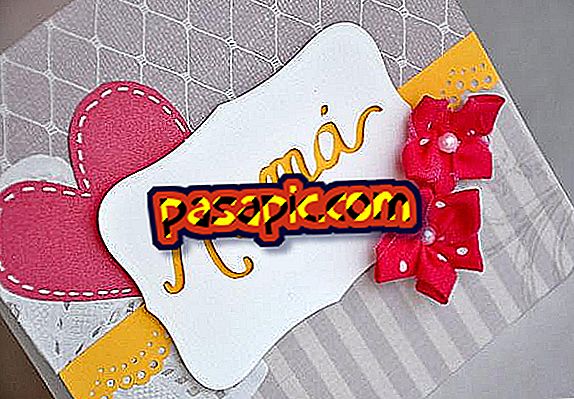When they stop biting the puppies

At what age does a puppy stop biting? It is an almost inevitable question for anyone who has experienced the experience of seeing one of these animals grow. During the first months, the puppy bites everything that is in its path may cause the odd disaster. Before taking your hands to your head you should think that it is something temporary that occurs during the dentition of the animal, however, it is important that this period is accompanied by a good training.
In we explain when they stop biting the puppies and we give you some tips that will help both you and your pet during this stage.
Why my dog bites everything
The main cause why a puppy bites is the growth of teeth . During the first months of life, every dog experiences a change in dentition and, as a result, feels discomfort in their teeth. The response of the dog is to bite everything that is found to alleviate the discomfort in his mouth.
Regardless of whether your dog bites all because his teeth grow, the mouth is the main tool they have next to the ear and smell to discover the world around them. Through the mouth he is able to obtain tactile sensations and develop this sense. Therefore you should be clear that the fact that your puppy bites him is a completely normal situation.
When they stop biting the puppies
As we explained previously, to know at what age a puppy stops biting we must take into account his age . After 4 or 5 months of life, the little dog loses milk teeth, although in some breeds this change may be a little later. So, if you wonder why your dog's teeth fall out you should consider this period in its growth stage. However, you may not even realize that your puppy loses teeth, since in most cases they are swallowed, something habitual and that does not generate any harm in the animal.
So, a puppy dog will stop biting when the teething change ends. This process takes time to finish around 7 or 8 months of the dog's life. During this time, your dog will bite everything he finds to release his new teeth and find relief from the discomfort that this process implies.
Tips during teething change
Now that you know when you stop biting a puppy dog, it is useful to keep in mind these tips that will help your puppy to overcome this stage without problems:
- Clear the floor of objects that are easily reachable for your puppy: shoes, clothes, backpacks, etc.
- Offer toys that can relieve the tension that suffers during teething. It is advisable to visit a veterinary center to recommend the most appropriate.
- Cold toys can help your puppy relieve the pain you feel when new teeth come out. As in the previous point, you can consult with the veterinarian the best options.

How to make your dog stop biting
If during the process of teething or after your puppy bites objects or bites you when you try to caress him, you can try some tricks that will help you teach that this behavior is not appropriate. However, before you should have two things clear :
- Do not let your dog nibble your hands during the change of teeth. Even if you do it playing and you hardly feel pain, the animal can come to relate the biting of your hands with something accepted by you, and it is very possible that it continues doing it when it reaches the adult stage.
- Be careful with some games . Tug-of-war is a very common game that dogs seem to enjoy. However, this type of entertainment is often interpreted by the animal as a "force competition", and can develop aggressive behavior against this game.
With this in mind, we can begin to explain what to do to stop a dog from biting:
- Say NO Every time your dog bites your hand when you play with him, stop the game and say NO firmly. In this way he will relate this behavior to a negative connotation. He must understand that when he bites his behavior he is not acceptable to us.
- Do not tempt your dog . Shaking your hands can be a stimulus for your puppy and awaken in him the need to play and bite your hand. Therefore, try to keep the limbs quiet so that it is not a visual element that stands out and can draw your attention.
- Repeat several times . Try the above process several times, and reward your puppy when, instead of biting, you lick and show signs of repentance in front of the behavior we want to avoid. Cherish him and congratulate him in a friendly tone.
- The right toys . Provide your puppy with toys that he can play with and release tension with his jaw. Bones are a good option. Every time you bite you can provide the bone to relate the bite with the right object.
If you want more information, you can consult this article where we explain how to train your dog so that it does not bite.



